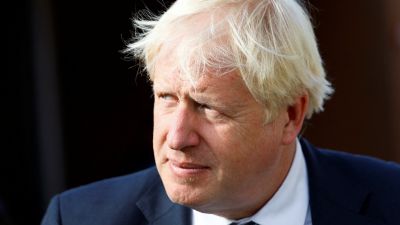Insight
Why partygate could yet be a party pooper for Boris Johnson’s prospects of return

Despite the explosive details, partygate was never really about cake and cava. It was about trust and truth.
The former was undoubtedly shattered by the scandal. But how much of the latter we ever obtained is still unknown.
For months, the truth seemed elusive. First, Boris Johnson denied that there had been any rule-breaking at all in Downing Street. Then, when that denial was disproven, his response was finessed into a denial of any knowledge of rule-breaking.
After so many twists and turns in the story, you might think partygate is over.
But what Boris Johnson knew is crucial for the final act of this year-long saga.
After an inquiry by the Metropolitan Police, then another by the civil servant Sue Gray, today we expect MPs on the Privileges Committee to meet and discuss the timetable for a third inquiry into partygate.
ITV News understands that they could begin hearing evidence as soon as this month about whether Boris Johnson misled the Commons when he repeatedly denied knowing about Covid rule-breaking in No10 (the most fined address in Britain).
We have previously reported on claims that the evidence to the committee will be explosive.
Now, we can bring you fresh disclosures which cast doubt on Boris Johnson’s denials.
For the first time, the podcast allows you to hear directly from our sources, who helped us to break several key stories over the course of the scandal.
Among them, are two claims with particular implications for the Privileges Committee.
First, the accusation that Boris Johnson himself joked about attending “the most unsocially distanced party in the UK”. Was he really unaware of rule-breaking, when he himself was joking about it? Note that Boris Johnson’s office has offered no denial.
It may seem inconceivable to MPs that a Prime Minister could survey a room full of aides drinking and celebrating, note their proximity to one another despite social distancing guidelines and laws, and not register this to be a rule-breaking affair.
Second, the accusation that No10 staff deliberately destroyed evidence raises questions about whether the Met Police and Sue Gray obtained the whole truth, but also casts doubt on whether the Privileges Committee will be able to access all of the records that they require too.
MPs will need to cross-reference what the Prime Minister said about the scandal with evidence about what he knew and what he was told to say at the time by advisors.
The Cabinet Office insist that staff were told to retain all relevant information and comply fully with investigations. But has anything been lost to the proverbial shredder which would help prove or disprove Boris Johnson’s claims? We do not know.
All of this matters not just in terms of answering questions about the past, but in terms of determining Boris Johnson’s future.
His potential return was thwarted last autumn when, following the resignation of Liz Truss, MPs failed to flock to him in overwhelming numbers, in part because of the potential for the Privileges Committee to further blight a second Boris Johnson premiership.
If the committee finds that Mr Johnson did indeed mislead MPs, he could be banished from the Commons, face a by-election and lose his seat. In that scenario, he cannot return as Prime Minister, at least not without finding another constituency.
As the Conservative party peers into the potential abyss of electoral defeat, Boris Johnson is rumoured to be poised, ready to offer his party optimism. Some still believe he is the only Tory leader who could win the next election if he does indeed return.
What the Privileges Committee represents is a looming barrier in his way. A hurdle, which if it trips him, will see him stumble off the track, disqualified from the sprint to the next election.
Partygate could yet be a party pooper for Boris Johnson’s prospects of return.
What did Boris Johnson really know about Downing Street’s notorious parties? With fresh revelations from our sources, in their own words, listen to the definitive behind-closed-doors story of one of the biggest scandals of our era.